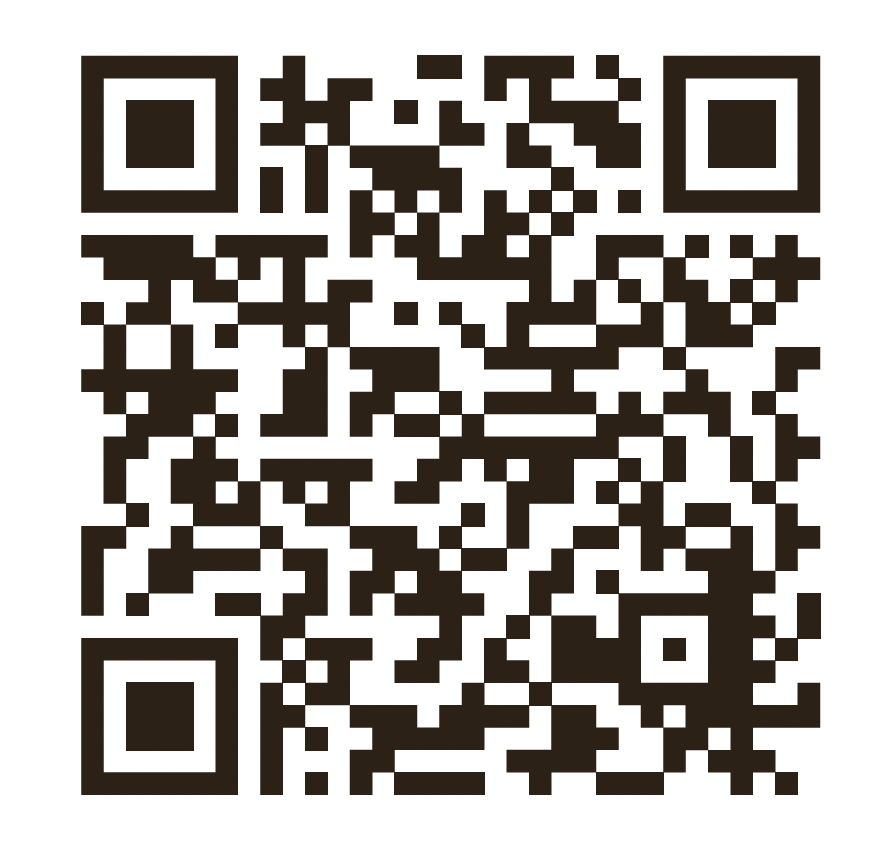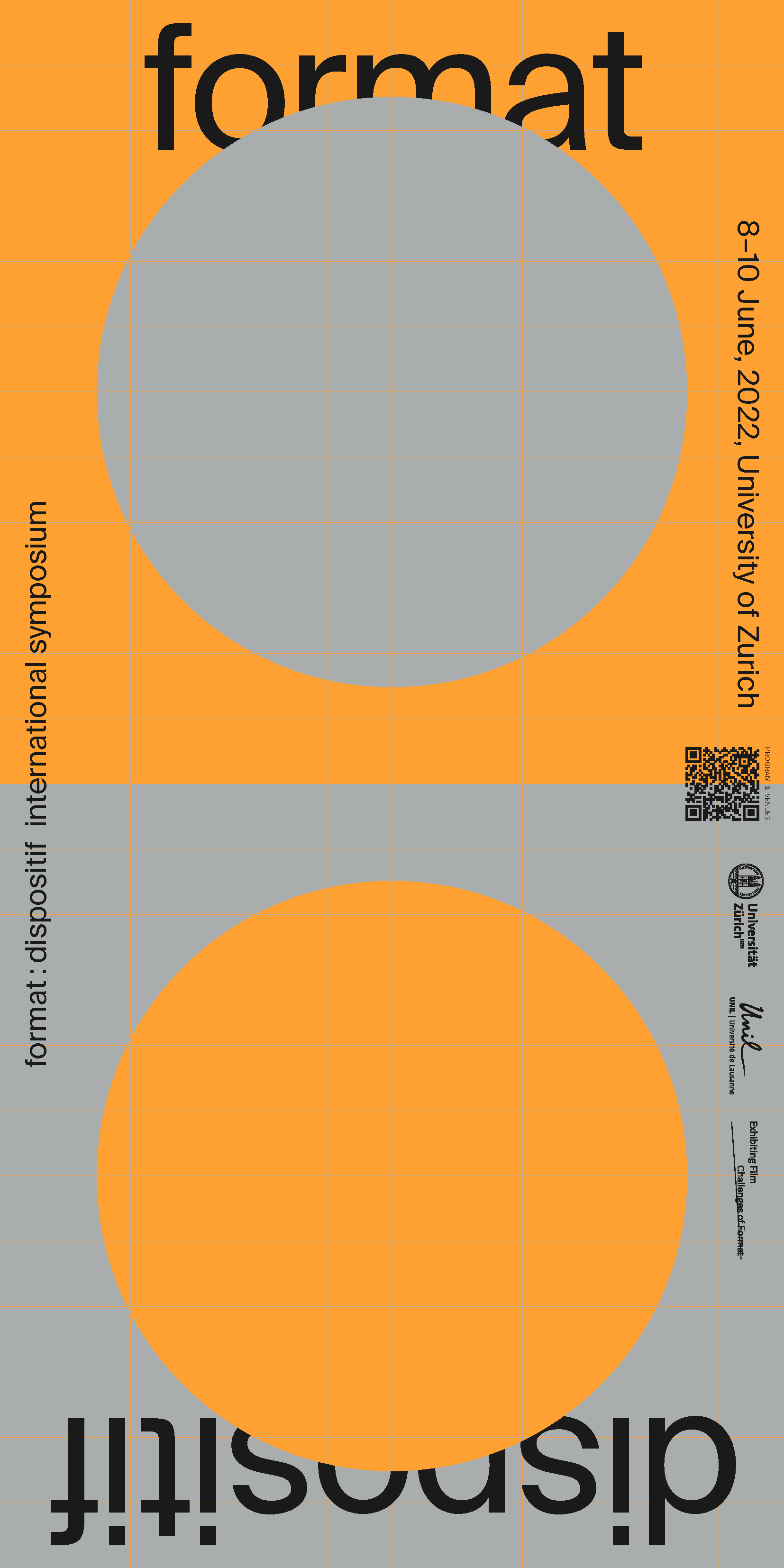format : dispositif
International Symposium, June 8-10, 2022, Zurich
The international symposium is an attempt to systematically relate format and dispositif as key theoretical concepts that make it possible to address films as heterogenous ensembles in terms of knowledge hierachies and power structures. Both concepts have participated in radically opening the discipline to new objects and dimensions of research, and they have had an important impact on the profound epistemological shifts that have recently transformed the discipline. If dispositif has allowed for the renewed consideration of material and political media history, format has furthered this approach to include ecological and infrastructural aspects.
From the art world to media studies, questions of format have recently become the focus of increased attention. The implications of these debates not only render the critical reflection on format as a theoretical concept possible, they also make this a desideratum. Format has moved beyond individual studies and definitions into a strategic term, a tool for an intervention in art history and film and media studies by reformatting them as disciplines “after art” and “after media”. Rewriting and revisioning their methodologies and historiographies thus allows for the recognition of the entanglement with political, economic, social, scientific, legal, environmental, and other interests beyond the technical and the aesthetic. In that, it seems that formats could be apprehended as dispositifs. However, a critical evaluation of the relatedness of the two concepts, along with their significant divergence and theoretical legacies, has not yet been undertaken.
Intended as an extension to the current research debate, the symposium invites contributions with a focus on the theoretical and discursive operations of both concepts, and on their relevance for the understanding of concrete historical or contemporary situations. The aim is (1) to consider format and dispositif with regard to their respective criticizing and legitimizing function within Western discourses of a global history of art and media, and (2) to examine artistic and non-artistic practices in which these problems and discourses materialize. Analyzing moving image formats and dispositifs should help to address the enforced exclusions and inclusions within processes of global networking, cooperation and communication. In addition to tracing the theoretical lineages and trajectories of these concepts as well as mapping their entanglements and confusions, the focus will be on specific case studies, considering particularly the practices that organize forms of knowledge and participation in moving image production and circulation, whether analogue or digital (e.g. substandard gauges in the context of decolonial art, media education, development aid, migration policy, etc.). Expanding on previous research, the symposium invites young researchers together with internationally renowned scholars in this field.
The symposium is jointly organized by Prof. Dr. Fabienne Liptay (UZH) and Prof. Dr. Benoît Turquety (UNIL). It is part of the interuniversity doctoral program Visual Dispositifs: Film, Photography, and Other Media, University of Zurich and University of Lausanne, and the SNSF project Exhibiting Film: Challenges of Format. It is funded by the Swiss National Science Foundation and the Graduate School of the Faculty of Arts and Social Sciences at UZH. Conference languages are English, French and German.
With contributions by
Dalida María Benfield, Philipp Blum, Miriam De Rosa, Congle Fu, Carla Gabrí, Marcus Held, Frank Kessler, Birte Kleine-Benne, Isabel Krek, Fabienne Liptay, Volker Pantenburg, Alexandra Schneider, Tobias Schönrock, Jonathan Sterne, Maria Tortajada, Stéphane Tralongo, Benoît Turquety, Axel Volmar, Michael Wagnières, Laura Walde, Haidee Wasson, Siegfried Zielinski.
Contact
If you have any questions, please contact us:
fabienne.liptay@fiwi.uzh.ch
benoit.turquety@unil.ch

